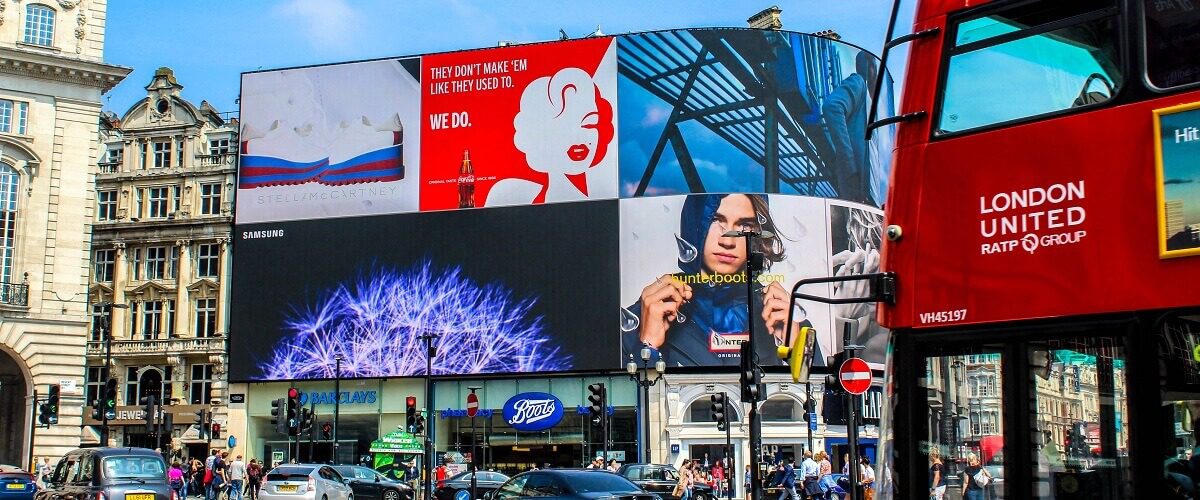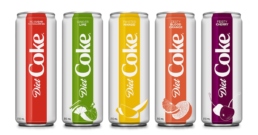3 Examples of Creatively Awesome Brand Actions
Firs of all, what is a brand action, anyway?
Let's just face it: despite media being bombarded by all types if ads in different media formats throughout an average day, It's getting harder and harder to gain the consumers' attention. Attention spans are shortening, and what used to cut it just ain't cutting it anymore (for the most part, anyway).
So what exactly are brand actions? - OOH tactics and other events and "stunts" to cut through the clutter and connect with consumers by giving them an experience. These brand activations or brand actions are becoming all the rage in the industry. While there have been many excellent and very creative brand actions and activations over the last few years, I wanted to showcase just three of the top creative brand actions/activations from the past couple years.
#1. Burger King - Google Home "Hack"
As smart speakers have started invading homes and reacting to what is happening around them, Burger King decided to take advantage of that new presence in its customers’ homes.
In a TV spot, they decided to talk directly to Google Home speakers, triggering an action with the “OK Google” formula, so you can learn more about their most iconic product, the Whooper.
This hack had so much momentum Google decided to block that specific request, generating even more PR for Burger King in the end. One of the great brand actions of 2017 and wonderfully creative idea (although Google might have not been so amused).
#2. Absolut Vodka - "Never Gonna Gif You Up"
This is the story of how the brand got 780 million organic views using wit, stop motion and a lot of vodka.
Giphy, the world’s largest GIF platform serves 2 billion gifs to users on a daily basis and Tinder reports that users who start conversations using GIFs have a 30% higher reply rate than those who don’t. The way these GIFs are used poses an exciting opportunity for brands, as they’re shared as a form of self-expression from one person to another.
If a brand could create GIFs relevant enough for a certain audience, they could effectively inject the brand into their target audiences’ online conversations without having to rely on intrusive ads. So, this is exactly what Absolut did.
#3. Pedigree (UK) - "Dog Dates"
1.2 million older people in the UK are labeled as chronically lonely. Pedigree, following the direction of their Feed the Good campaign, decided they could make a difference by pairing seniors with local dogs and sending them out on a date together.
Armed with the belief that ”a dog is a conversation waiting to happen,” program participants took their dog date for a walk and met new people through the instant ice-breaker of their canine companion. The program got elderly people out of their homes and into social settings, without the responsibility of owning a pet themselves. And it worked brilliantly, both as a way to get lonely seniors out and socializing, and Predigree gaining more grade awareness amongst consumers. (Here's a link to the case study)
The Case for Investing in Creative Advertising
Why creative advertising?
As a business, trying to persuade folks buy stuff can be a hard task. As consumers we’re constantly being fed advertisements and brand experiences thousands of times per day, but, due to all the ‘noise’ around us these days, the ability for there average consumer to actually remember those advertising exposures is extremely limited. Not to mention, our attention spans are continuing to shrink as well. There’s no shortage of theories and ideas for cutting through all this ‘noise’, and in many cases there’s actual research to support those ideas and theories. What we do know, however, is this: Creativity and creative advertising correlate to sales and sticking in the minds of consumers. it can really be distilled down to three main reasons why —
RECOGNITION:
It’s simple: consumers remember creativity. According to a 2004 study, creative advertising, when compared to other more “traditional” media, stood out from the crowd, attracted attention, and was much more memorable for being more noticeable to consumers. In fact, a 2008 study from the Journal of Advertising, stated that “creative advertising was found to enhance recognition, and this positive effect increased over time.” This is because creative ads tend to present new information in connection with old info in ways that add a greater level of meaning for the audience. Memory can be defined as the process of making meaningful connection between new and old ideas. A great creative ad or idea can help do the heavy lifting for you.
ENTERTAINMENT:
It’s well known that creative content is entertaining content. As consumers, we watch tv, browse social media, and search for things on Google mostly for a form of entertainment. The places we go for entertainment are also the places we have come to accept as places we are more likely to see an advertisement. Hard sells are boring, they’re disruptive and not very attractive. Creativity makes advertising appealing in and of itself (to the degree that an ad can be appealing for a consumer). Creative ads are also better for consumers, and our media partners. Another recent study found on tandfonline.com, looked into the unintended impact of creative on an audience. It found that creative work has a positive impact on the audience’s own creativity and, in turn, produced a positive perception of the media [the ad] was placed in. Don’t forget: you can get even more creative by deciding where and when to place an ad. Think “outside the box” on this!
MONEY, MONEY, MONEY:
The bottom line: creative content sells! The idea is that if consumers enjoy a products branding, and they remember the product or service from its branding, they’re more likely to end up buying said product or service. In other words, If the audience is entertained, and if they remember the product, there’s a strong correlation with the purchasing decisions. According to the Cannes Lions research, companies that win their annual Creative Marketer of the Year “outperform the stock market by a factor of 3.5”. They have also found campaigns that “go viral” make larger commercial gains than average and have more positive brand effects. As for the cost of this creativity, Cannes demonstrated these viral campaigns on average had half of the budget of the average campaign. to sum it up, creativity can actually help you save money. It is well known in the ad industry that creativity is the key to doing more with less [of a budget].

When it comes to investing in creativity, the bottom line is that it’s a no brainer. Creativity and creative advertising produces greater recognition amongst consumers, is shown to be farm more entertaining than a traditional “hard sell” ad, and can actually help save you money if you are doing it effectively. These three big things help prove that businesses who are ready to think outside of traditions and norms when it comes to branding and advertising, are more often than not rewarded for their ability to buck the norm. It just makes sense. Businesses who invest in creative advertising and branding are winning. Is your company or business interested?
OOH Ads Effective in Reaching Millennials, Gen Z
Why are OOH ads working so well for younger generations?
As it stands today, Millennials and Gen Zers make up almost half of the population in the US and are amongst the most influential of today’s consumers. However, on the downside, they are also the hardest audiences to engage, due to the ride of cord-cutting, ad-blocking and radio-streaming. Basically, they are leading the charge away from traditional media, and thus, the traditional advertising approach. More than half of millennials actively block ads and Gen Z is even more likely to use some form of ad blocking… YIKES!!
This shift in overall media consumption habits has led to a rising investment in out-of-home or - OOH ads spend. OOH ads, compared to other media channels, cannot be blocked, fast-forwarded, or skipped (bummer). You also cant pay more to avoid these types of ads. But, don’t fret! According to a recent global study by Kantar Millward Brown, billboards and other forms of OOH ads are the #1 form of ads amongst Millennials and Gen Zers.

According to another recent study, this time done by Nielsen, “one out of every four consumers will post an image of an outdoor ad to Instagram.” These younger generations are also nearly 50% more likely to click on a mobile ad after being exposed to the same ad on an OOH advertisement first. While Gen Y and Z consumers love taking in content (way more so than other, previous generations), they don’t have a lot of tolerance for interruptive ads (See: ad blockers, cord cutting, etc.) – which makes outdoor ads and different experiential types of media a more important advertising medium for brands and agencies as they look to influence these younger consumers.
Attention spans are continuing to get shorter and shorter. While these younger generations love consuming content, their attention spans are growing shorter by the day, thanks to the rise of the internet and smartphones. Gen Zers, who grew up in a world with smartphones, have only an 8-second attention span. This is even shorter than Millennials, (believe it or not) who have an attention span of about 12 seconds on average.
To overcome these challenges, brands and agencies are increasing their spend on OOH advertising, banking on direct-to-consumer engagement in local markets with authentic content that is relevant to their (Millennials and Gen Z) daily lives.
OOH advertising provides a last-touch opportunity. Location, frequency, and context each play an important role in successfully influencing these younger consumers’ behaviors with OOH. This approach is also forcing brands and agencies to think creatively about context, time, location, and messaging in order to win over Gen Y and Z audiences.
These days, consumers spend roughly 70% of their time outside, while having a lower tolerance for digital ads than ever before. Brands and agencies that are able to cut through the noise, think creatively, remove the barriers that get in the way of reaching Millennials and Gen Zers, and start focusing more on ads in real-world formats like billboards and other OOH, will begin seeing a much better return on investment for years to come.
All of these above reasons make OOH ads the most effective way to market towards Millennials and Gen Z these days. If you’re a brand, and you’re not starting to focus more on OOH ad spend… what are you waiting for?? Contact Blue Ridge Creative Marketing today to see how we can help you.
The Nitty Gritty: Video Ads for Small Business
Not too long ago, larger businesses considered video ads as something that was “nice to have”, while smaller businesses would only wish they could have a budget big enough for video ads.
However, because of the rapid rise of technology and social media, video advertising has become a significant part of marketing strategy for businesses of all shapes and sizes (not to mention, budgets). Brands already embracing video ads have had a great advantage over their competition.
Soon, video advertising for small businesses will become essential. Without it, they may not be able to compete for new customers. Video ads provide so many advantages that small businesses without a video marketing strategy may very well get left behind. Here are the top three benefits and defining reasons your small business should consider using video ads.

1. Continuing to Grow with No Signs of Slowing Down
These days, video is everywhere! People watch over 500 million hours of video on YouTube each and every day. An estimated one-third of all online activity is spent watching video. That’s incredible.
Business owners should know that digital video is not just a “fad.” It’s a real trend that reflects our evolving preferences and use of technology. It shows no signs of slowing down anytime soon. Video uploaded to social media has also quickly gained traction. Since Facebook introduced native video in 2013, it has grown to have over 500 million people watching at least one video in a given day.
Mobile is the main reason behind this huge growth in video production and consumption. As smartphone adoption rates rose and device owners gained access to cheaper data plans, the simultaneous explosive growth in content production and audiences looking to be entertained by video created a full-blown phenomenon.
2. Video Communicates Emotion More Than Words or Images Alone
Video content combines sight and sound with motion to create a unique experience. By combining moody imagery with soothing music, for example, small businesses can make viewers feel emotion more effectively than images or text can just by itself.
Look at explainer videos for example. A two-minute explainer video is capable of delivering over 200 words from a script. It will also show deeper information with animations, and things like visual cues.
It’s also well-known that folks tend to remember video far more clearly compared to text alone. According to a recent study, the average viewer claims to remember nearly 95% of what they saw in a video compared to just 10& of what they read. That is a giant difference!
This info shows that video does more with less. Your viewers will get more of your message, enjoy it as an experience, and remember it better overall. It’s worth the money for a small business.
3. Rank Higher in SEO and Social Media
YouTube is the actually considered the second largest search engine in the world. It’s also owned by the largest search engine in the world, Google. Google’s search index algorithm gives video about 50 times higher chance of appearing on the first page of results compared to any page that just uses text or imagery.
Video search results tend to show at the very top of SERPs (search engine results pages) or near the top-five overall results. By having your video more likely to appear at the top of the search results, you can get more clicks from searchers. This is a huge advantage to pay attention to. So, using videos can help your website get ranked higher than you’d ever be able to achieve through traditional SEO alone.
There it is, folks. Three very good reasons for your small business to get into video advertising. With the technology to produce and edit high quality video at our fingertips, it has never been cheaper or easier to produce exciting video ads that only big corporations could make just a few short years ago. Remember that you can start small, experiment, and have fun. Because it can be done for cheap, or even free, you have nothing to lose, and everything to gain. Want to get into video ads, but not sure where to start? we can help! Contact us today to get started.
Effectively Leveraging the "Second Screen"
Let’s face it the 'second screen' is here.
We spend A LOT of time on our phones these days. Be it commuting to work on the subway, waiting for our food at a restaurant, in the grocery store line. We’re even using them while watching TV!
In fact, recent research from eMarketer found that over 177 million adults (18+) use their phones while watching TV. While that has big implications if you’re running traditional TV ads, it’s also something that brands need to increasingly think more about when it comes to the mobile experience.
According to the same study, an estimated 177.7 million U.S. adults, (or about 70% of the population), regularly use a device while watching TV. Approximately 26% or 46 million of these “second-screeners” are looking for content related to what they’re watching, but the majority (131.5 million) are not.
How do you effectively reach these people using a second screen, regardless of when and which device they’re using? How do you stand out and break through the noise amidst the choices coming from not just one but two or maybe even three devices?

The answer could be screen-agnostic strategies and leveraging existing creative across channels and screens, TV’s included. Here’s how it works: instead of customizing different ads for individual platforms, you’d create content that works across platforms to reach audiences wherever their attention happens to be at the time.
This could mean things like increasing the use of six-second spots, the video ad format of choice for social media channels, largely thanks to the “YouTube generation” and its preferences for snackable – or micro – content, for traditional TV advertising, or maybe even experimenting more with traditional 30 or 60 second spots on social media – which social platforms like Snapchat have recently begun trying.
But, it’s all still a relatively new phenomena, and part of the problem is that marketers still haven’t figured out the best ways to engage these consumers effectively. Even though consumers may be on their smartphones or tablets while watching TV, they do not yet assume that a TV ad will require them to connect via mobile, so marketers need to really educate consumers if they want this to become a reality.
To really begin taking advantage of “second screen”, testing different screen mechanics and platforms should be encouraged, but marketers should also think about how they can start complimenting mobile and tablet use with their TV ad from the start, and activate it regularly so that folks begin to expect to engage with a TV ad, and it becomes a “new norm.”
Need a strategy to reach your audience? Contact Blue Ridge today and lets see how we can help your brand achieve tremendous second screen results!
7 Strategies for Reviving a Stale Brand
The idea of commoditization transposed to brand is, in reality, what commoditization is: the (slow) death of relevant value - i.e. becoming a stale brand.
But, don't fret. There are strategies you can put in place to reverse the speed of that effect. Here are seven ways to "decommoditize" your stale brand and reassert its brand value:
1. Think of the brand/product in new ways – when you redefine what something is or could be, you reframe its context making it much easier to redefine what it can be used for. For example: when you stop thinking of milk as a drink, and start thinking of it as a food, you change the scope of what you’re working with in so many new ways.
2. Redefine who you want the brand to appeal to – if the current target audience starts valuing it less, think about other groups who might be able to use it in new ways that enable you to regain value. A good example is Starbucks. They redefined the value of coffee over time by making coffee hip, urban and tailored to the individual. In a world that believes it’s seen it all, discovery is a powerful consumer motive!
3. Change what the brand/product looks like – sometimes changing the value of a commodity can be as simple as changing how it appears to others. Think about the difference in pricing and perception between bottled beer and beer on tap. But, be careful - new packaging alone won’t make up for a product that doesn’t add value. What it can do is signal the unrealized value that you want consumers to realize.
4. Name it in different ways – If you’re selling copper and everyone else is selling copper, what can you call your copper to distinguish it from what people can source anywhere? Remember - renaming alone won’t be enough. In the case of cervena (a free meet brand in New Zealand), the change in name spoke to an idea that consumers were interested in, and eliminated the concern, especially among American consumers, that they were eating Bambi.
5. Distribute it differently – changing the distribution channel can be an effective way to transform your product into something valued by a different, more specific audience. iTunes rebuilt the music industry by reinventing the concept of the single into a single digital track and allowing people to buy the music they wanted in a new way, at a new price. Doing this will help lift up your stale brand.
6. Experiment with different price points – This is a particularly effective approach when combined with segmentation. Go after various parts of the market with products that demonstrate various levels of added value and are priced accordingly – e.g. a bulk product at a bulk price, a high end or specialized product priced at a top-end price, and a consumer focused product that may even operate at flexible price points.
7. Wrap a different story around it – New storylines can change how people perceive or view a brand or product. Increasingly, there are opportunities to link undifferentiated products to differentiating stories around environment, conduct, purpose, and cause. Once integrated of course, that storied brand has new value for different buyers because now it’s personal.

While, there are many different ways to stave off "brand decline" and restore value to goods whose value has decayed, there is no denying that the product or brand you make has a "best-before" date. You need to assume commoditization, and continually look for ways to slow its advance or reverse its influence, or it will usually always get your brand in the end.







